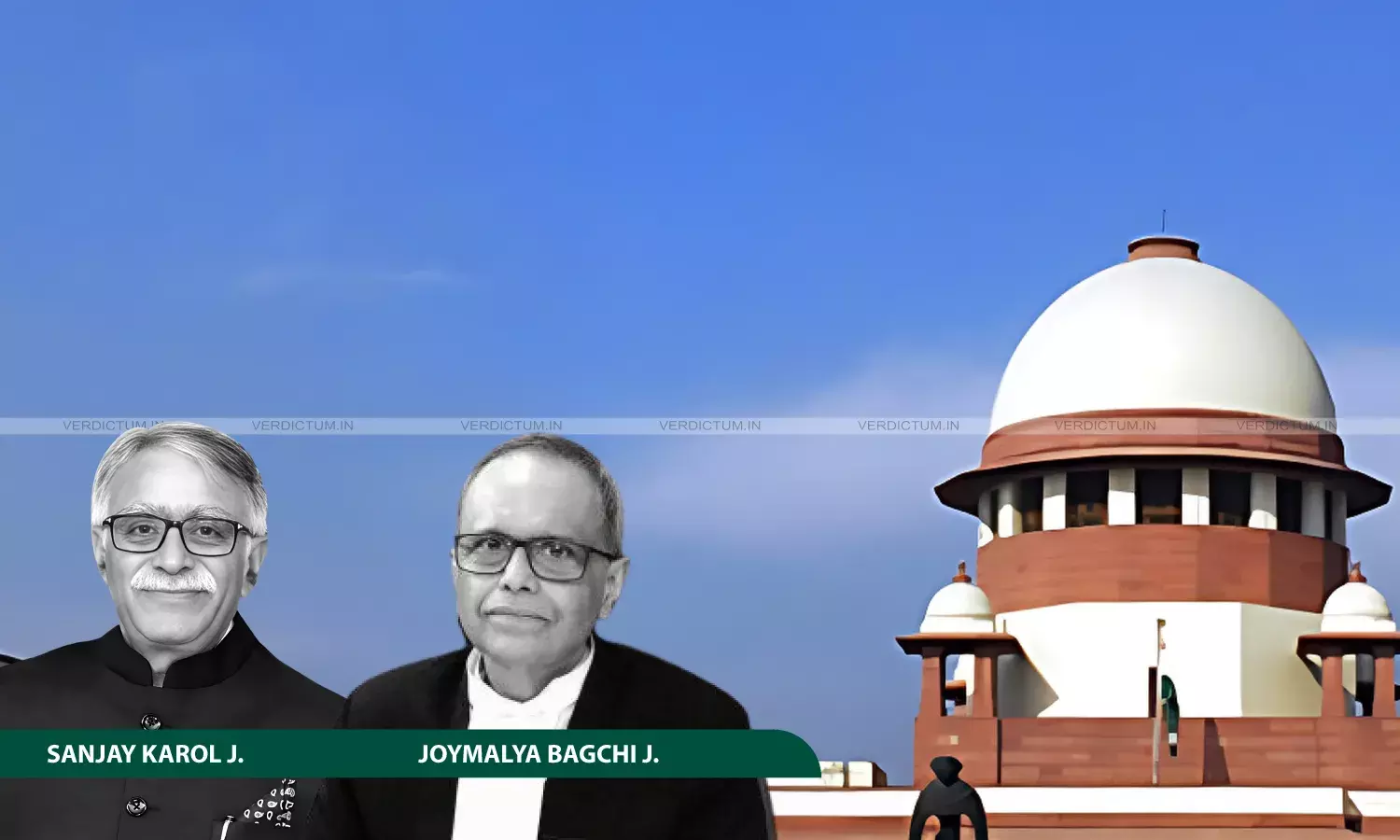Omission to Mention Existence Of Wife In Will Raises Serious Doubt About Its Genuineness: Supreme Court
The Supreme Court considered the question of whether non-mention of the existence of a wife and failure to give reasons for her disinheritance in the Will amounts to suspicious circumstance which exposes lack of a free disposing mind of the testator.

Justice Sanjay Karol, Justice Joymalya Bagchi, Supreme Court
The Supreme Court observed that non-mention of wife or the reasons for her disinheritance in the Will, is an indication that the free disposition of the testator was vitiated by the undue influence.
The Supreme Court dealt with an appeal filed by the nephew of the Testator of the Will against the order of the High Court stating that the non-mention of wife and the reasons for disinheritance of Wife in the Will exposed absence of ‘free disposing mind’ of the Testator and amounts to suspicious circumstances.
The Bench of Justice Sanjay Karol and Justice Joymalya Bagchi observed, “In this background, we have no hesitation to hold that nonmention of 1st Respondent or the reasons for her disinheritance in the Will, is an eloquent reminder that the free disposition of the testator was vitiated by the undue influence of the appellant.”
Case Brief
The Appellant is the nephew of the Testator of Will who alleges that his deceased uncle bestowed certain property in his name and further the Respondent No. 1 is not lawfully wedded wife of the deceased.
The Trial Court and the First Appellate Court dismissed the contention of the wife that she is the lawfully wedded wife of the deceased and 2nd respondent is their adopted son.
However, the Punjab and Haryana High Court reversed the findings of the Trial Court and observed that the suspicious circumstance namely, non-mention of the wife of the testator and the reasons for her disinheritance in the Will exposed absence of ‘free disposing mind’ of the testator
Court’s Analysis
The principal issue before the Supreme Court was whether non-mention of the existence of a wife and failure to give reasons for her disinheritance in the Will amounts to suspicious circumstance which exposes lack of a free disposing mind of the testator.
The Court referred to various legal principles with regard to the proof of Will and parameters to ascertain suspicious circumstances.
The Bench noted that we are conscious that deprivation of a natural heir, by itself, may not amount to a suspicious circumstance because the whole idea behind the execution of the Will is to interfere with the normal line of succession, however, prudence requires reason for denying the benefit of inheritance to natural heirs.
“What boils down from this discussion is that suspicious circumstance i.e. nonmention of the status of wife or the reason for her disinheritance in the Will ought not to be examined in isolation but in the light of all attending circumstances of the case. It would be argued that proof of signatures on the Will and its registration dispels such suspicious circumstance. On a first blush, this submission appears to be attractive till one delves further into the peculiar and unique circumstances of the case”, the Court said.
The Court observed that a cumulative assessment of the attending circumstances including this unusual omission to mention the very existence of his wife in the Will, gives rise to serious doubt that the Will was executed as per the dictates of the appellant and is not the ‘free will’ of the testator.
Accordingly, the Appeal was dismissed.
Cause Title: Gurdial Singh (Dead) Through Lr V. Jagir Kaur (Dead) And Anr. Etc (Neutral Citation:2025 INSC 866)


